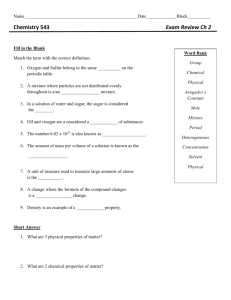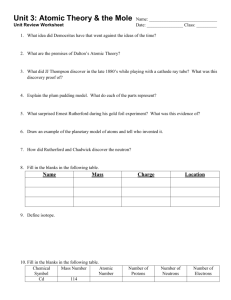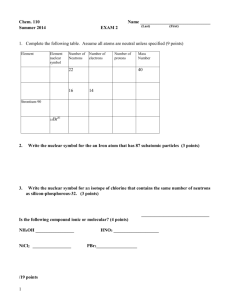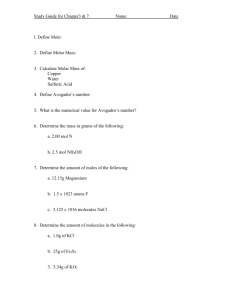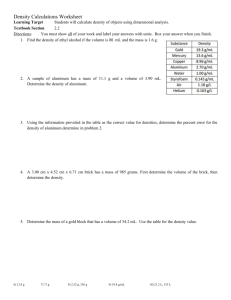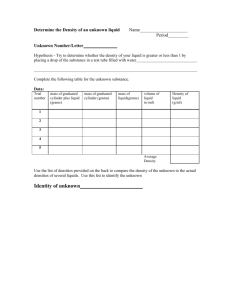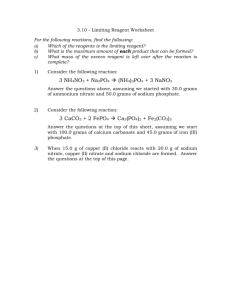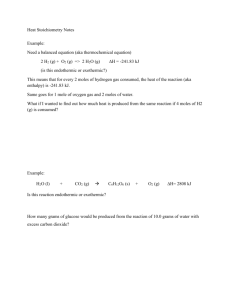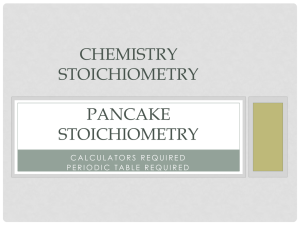Stoichiometry Practice Worksheet
advertisement
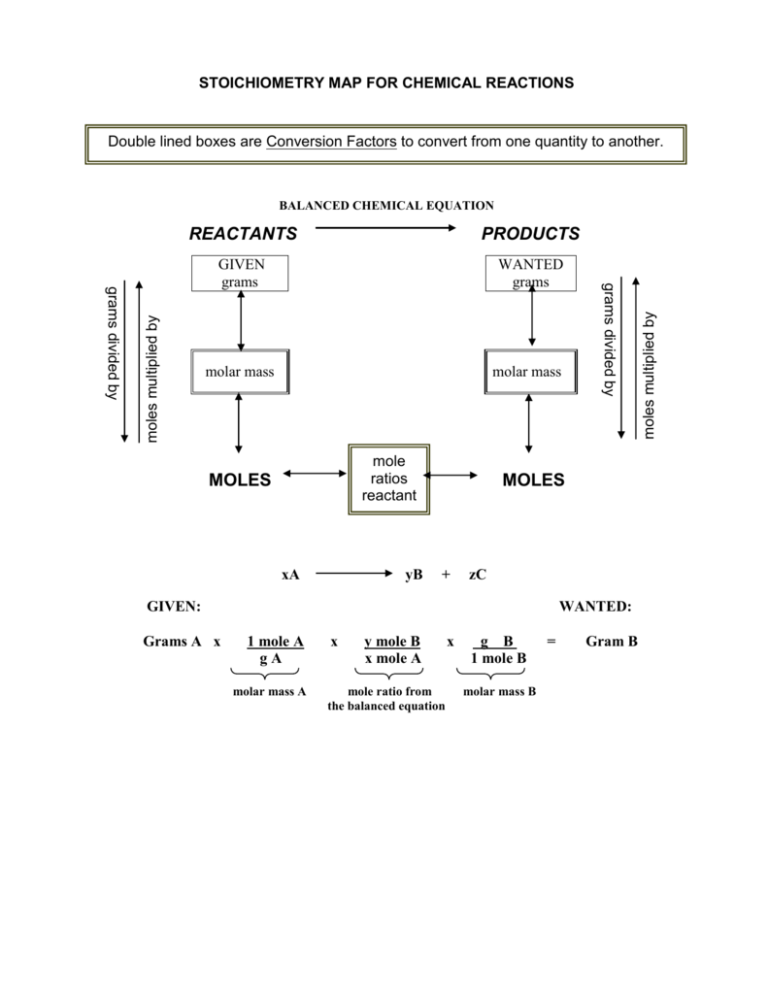
STOICHIOMETRY MAP FOR CHEMICAL REACTIONS Double lined boxes are Conversion Factors to convert from one quantity to another. GIVEN grams WANTED grams molar mass molar mass moles multiplied by molar mass PRODUCTS mole ratios reactant s and product s MOLES xA yB MOLES + zC GIVEN: Grams A x grams divided by molar mass grams divided by molar mass REACTANTS WANTED: 1 mole A gA molar mass A x y mole B x mole A mole ratio from the balanced equation x g B 1 mole B molar mass B = Gram B moles multiplied by molar mass BALANCED CHEMICAL EQUATION Stoichiometry Practice Worksheet Balancing Equations and Simple Stoichiometry Balance the following equations: 1) ___ N2 + ___ F2 ___ NF3 2) ___ C6H10 + ___ O2 ___ CO2 + ___ H2O 3) ___ HBr + ___ KHCO3 ___ H2O + ___ KBr + ___ CO2 4) ___ GaBr3 + ___ Na2SO3 ___ Ga2(SO3)3 + ___ NaBr 5) ___ SnO + ___ NF3 ___ SnF2 + ___ N2O3 Solve the following stoichiometry grams-grams problems: 6) Using the following equation: 2 NaOH + H2SO4 2 H2O + Na2SO4 How many grams of sodium sulfate will be formed if you start with 200 grams of sodium hydroxide and you have an excess of sulfuric acid? 7) Using the following equation: Pb(SO4)2 + 4 LiNO3 Pb(NO3)4 + 2 Li2SO4 How many grams of lithium nitrate will be needed to make 250 grams of lithium sulfate, assuming that you have an adequate amount of lead (IV) sulfate to do the reaction? http://www.chemfiesta.com Use the following equation to answer questions 8-11: 2 C6H10 + 17 O2 12 CO2 + 10 H2O 8) If I do this reaction with 35 grams of C6H10 and 45 grams of oxygen, how many grams of carbon dioxide will be formed? 9) What is the limiting reagent for problem 6? ___________ 10) How much of the excess reagent is left over after the reaction from problem 6 is finished? 11) If 35 grams of carbon dioxide are actually formed from the reaction in problem 6, what is the percent yield of this reaction? http://www.chemfiesta.com Answer the following stoichiometry-related questions: 12) Write the balanced equation for the reaction of acetic acid with aluminum hydroxide to form water and aluminum acetate: 13) Using the equation from problem #12, determine the mass of aluminum acetate that can be made if I do this reaction with 125 grams of acetic acid and 275 grams of aluminum hydroxide. 14) What is the limiting reagent in problem #13? 15) How much of the excess reagent will be left over in problem #13 after the reaction is complete? http://www.chemfiesta.com
